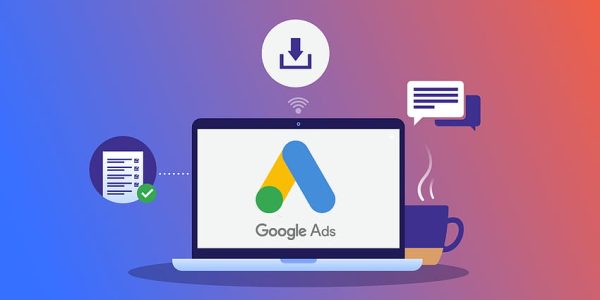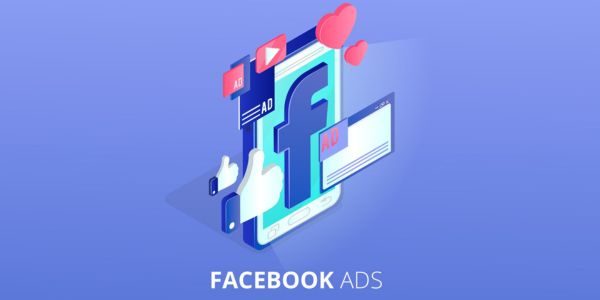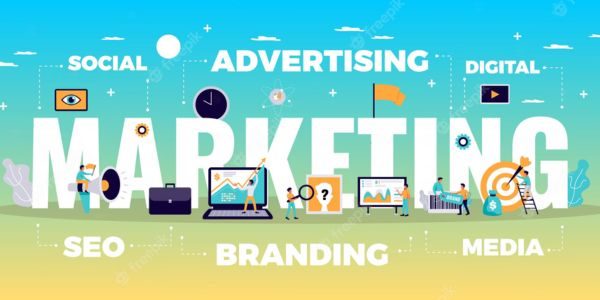Google Ads vs. Facebook Ads: Choosing the Right Advertising Platform for Your Business-Paid & Digital Advertising
In the world of digital marketing, the choice of advertising platform can significantly impact the success of your campaigns. Two giants in the advertising realm are Google Ads and Facebook Ads, each offering unique strengths and weaknesses. Deciding where to allocate your advertising budget requires a thorough understanding of these platforms and a clear alignment with your business goals. In this guide, we will compare the strengths and weaknesses of Google Ads and Facebook Ads to help you make an informed decision.
Google Ads: The Power of Intent
Strengths of Google Ads:
Intent-Driven Traffic: Google Ads capitalizes on users’ search intent. When people search for specific keywords related to your products or services, your ad appears, ensuring that your message reaches an audience actively seeking what you offer.
Wide Audience Reach: Google is the world’s most popular search engine, with billions of searches conducted daily. Google Ads provides access to a vast and diverse audience, spanning various industries and niches.
Keyword Targeting: With Google Ads, you have precise control over keyword targeting. You can bid on relevant keywords, ensuring your ads are displayed to users most likely to convert.
Ad Extensions: Google Ads allows you to enhance your ads with extensions, such as site links, callouts, and structured snippets. These extensions provide additional information and encourage click-throughs.
Advanced Tracking and Analytics: Google Ads offers robust tracking and analytics tools, allowing you to measure campaign performance, set conversion goals, and optimize your strategy based on data-driven insights.
Dynamic Remarketing: Google Ads enables dynamic remarketing, where you can show personalized ads to users who have previously visited your website, increasing the chances of conversion.
Weaknesses of Google Ads:
High Competition: Popular keywords can be highly competitive, leading to increased bidding costs. Small businesses with limited budgets may struggle to compete in certain industries.
Complexity: Google Ads can be complex for beginners. Managing campaigns, keyword research, and optimization require time and expertise.
Ad Fatigue: Over time, users may become accustomed to seeing similar ads for their search queries, leading to ad fatigue. Advertisers must continually refresh their creatives to maintain engagement.
Click Fraud: Click fraud remains a concern in pay-per-click advertising. Competitors or malicious entities may engage in fraudulent clicking, leading to wasted ad spend.
Facebook Ads: Targeting the Social Landscape
Strengths of Facebook Ads:
Precise Audience Targeting: Facebook offers a wealth of demographic and interest-based targeting options. Advertisers can reach specific audiences based on age, gender, location, interests, behavior, and more.
Visual Appeal: Facebook Ads emphasize visual content, making them ideal for businesses with compelling visuals or products. Eye-catching images or videos can grab users’ attention.
Engagement Opportunities: Facebook encourages social interactions, allowing users to like, share, and comment on ads. This engagement can amplify your message’s reach organically.
Budget Flexibility: Facebook Ads can accommodate a wide range of budgets. You can set daily or lifetime budgets, and the platform offers bidding options that suit your goals, whether it’s clicks, impressions, or conversions.
Remarketing: Similar to Google Ads, Facebook Ads supports remarketing campaigns, allowing you to re-engage users who have interacted with your website or app.
Multi-Channel Integration: Facebook offers integration with Instagram and Audience Network, broadening your reach across multiple platforms.
Weaknesses of Facebook Ads:
Limited Search Intent: Unlike Google Ads, Facebook Ads don’t rely on users actively searching for products or services. Instead, they target users based on their interests and behaviors, which may not always align with immediate purchase intent.
Ad Blocking: Some users employ ad-blockers, which can prevent your ads from reaching their intended audience.
Ad Saturation: Users may be inundated with ads on Facebook, which can make it challenging to stand out and capture their attention.
Privacy Concerns: Facebook’s data privacy controversies have raised concerns among users, leading some to be cautious about engaging with ads on the platform.
Making the Right Choice
To make an informed decision between Google Ads and Facebook Ads, consider the following factors:
1. Your Business Goals:
If you aim to capture users actively searching for your products or services, Google Ads may be the better choice. It’s particularly effective for businesses in industries like e-commerce, where customers have clear purchase intent.
If your goal is to build brand awareness, target specific demographics, or engage with your audience socially, Facebook Ads may be more suitable. It’s ideal for businesses looking to tell their brand story and connect with users on a personal level.
2. Your Target Audience:
Consider where your target audience spends their time online. Are they more likely to search for solutions on Google, or are they active on social media platforms like Facebook and Instagram? Align your choice with your audience’s online behavior.
3. Ad Creatives and Content:
Evaluate the type of content you have or can create. If you have visually appealing content or videos, Facebook Ads may leverage this better. Conversely, if your content revolves around specific keywords, Google Ads might be the way to go.
4. Budget and Resources:
Assess your advertising budget and the resources available for campaign management. Google Ads may require more expertise and time for keyword research and optimization, while Facebook Ads can be more budget-flexible and straightforward to set up.
5. Testing and Optimization:
Both platforms benefit from ongoing testing and optimization. Consider which platform aligns better with your ability to monitor, analyze, and iterate your campaigns based on performance data.
6. Integration with Other Marketing Efforts:
Think about how your chosen advertising platform fits into your broader marketing strategy. Do you plan to integrate your ads with other marketing channels, such as email marketing or content marketing? Consider how each platform complements your overall approach.
7. Seasonality and Trends:
Keep in mind any seasonality in your industry or trends that may affect user behavior. Certain industries may experience higher search volumes during specific times of the year, making Google Ads more advantageous during those periods.
Conclusion
The choice between Google Ads and Facebook Ads ultimately depends on your business objectives, target audience, content assets, budget, and marketing strategy. In some cases, a combination of both platforms may be the most effective approach to reach a broader audience and achieve various marketing goals.
Remember that digital advertising is not static, and the effectiveness of each platform can change over time. Regularly assess the performance of your campaigns, adapt to shifting trends, and refine your strategy to maximize the return on your advertising investment. With a well-informed decision and strategic execution, you can leverage the strengths of Google Ads and Facebook Ads to drive growth and success for your business.




